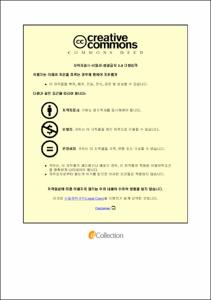직장에 복귀한 암 생존자의 직장 삶의 질 구조모형
- Issued Date
- 2019-08
- Abstract
- The study aimed to construct and validate a model of the quality of working life for cancer survivors returning to work. The study's hypothetical model was based on Peterson and Wilson's Culture-Work-Health Model and literature reviews. The main variables of the model were organizational culture, social support, organizational health, employee health, and quality of working life. The participants of this study were 204 cancer survivors in the extended cancer survivor stage with six months since returning to work. They were selected from two tertiary hospitals cancer centers located in two metropolitan cities and snowball sampling was used in parallel. The data were analyzed with SPSS 22.0 using descriptive statistics, t-test, ANOVA and Pearson's correlation coefficient, AMOS 20.0 program was used for confirmatory factor analysis, assessing hypothesis fit and verifying the research hypothesis. Result of verification of the structural model revealed that, the fit scores of the hypothetical model were in agreement with the standard values, and the fitness of the hypothetical model were consistent with the standard values, and the fitness of hypothetical model was confirmed(χ²/df=2.23, AGFI=.84, CFI=.93, TLI=.92, RMR=.04, SRMR=.06, and RMSEA=.08). The results of the path analysis of the main variables, cancer stigma had a significant direct effect on social support(β=-.34, p<.001). Social support had significant direct effects on quality of working life(β=.43, p=.025), employee health(β=.46, p<.001) and organizational health(β=.59, p<.001). Additionally, social support had an indirect effect on cancer stigma through employee health(β=-.16, p=.008), organizational health(β=-.23, p=.005) and quality of working life.(β=-.21, p=.005). Cancer stigma and social support had direct and indirect effects on the quality of working life of cancer survivors, and their explanatory power was 43.1%. The higher the cancer stigma, the lower was the social support and indirectly, the poorer were the employee health, organizational health, and quality of working life. Contrarily, when social support was high, employee health, organizational health, and quality of working life were high also. Therefore, to improve the quality of working life of cancer survivors who have returned to work, lowering the cancer stigma in the organization is important including the prejudice, and discrimination against cancer survivors, it is necessary to develop strategies and programs to enhance the support by superiors and colleagues, including information, resources and emotional support systems for job performance and job re-adaptation.
본 연구의 목적은 직장에 복귀한 암 생존자의 직장 삶의 질 구조모형을 구축하고 검증하는 것이다. 본 연구의 가설적 모형은 Peterson과 Wilson (2002)의 문화-일-건강 모델과 문헌고찰을 기반으로 하고, 선행연구 결과들을 통해 암 스티그마, 사회적 지지, 조직건강, 근로자 건강 그리고 직장 삶의 질을 주요변수로 선정하였다. 본 연구의 대상자는 총 204명이며, 2개 광역시의 대학병원 암 센터 외래방문 환자들 중 확장기 암 생존자로 직장에 복귀한 지 6개월 이상인 자들로 선정하였고, 눈덩이 표집법을 병행하여 자료를 수집하였다. 자료분석은 SPSS/WIN 22.0을 이용하여, 서술적 통계, t-test, ANOVA 상관관계를 분석하였고, AMOS 20.0을 이용하여 확인적 요인분석, 가설적 모형의 적합도 및 경로에 대한 유의성을 검증하였다. 구조모형의 검증 결과, 가설적 모형의 적합지수들이 대부분 기준치에 부합하여, 가설적 모형의 적합도가 확인되었다(χ²/df=2.23, AGFI=.84, CFI=.93, TLI=.92, RMR=.04, SRMR =.06, RMSEA=.08). 주요변수들의 경로분석 결과는 암 스티그마가 사회적 지지로 가는 경로(β=-.34, p<.001), 사회적 지지가 조직건강(β=.59, p<.001), 근로자 건강(β=.46, p<.001), 직장 삶의 질로 가는 경로(β=.43. p=.025)가 통계적으로 유의하였다. 또한 암 스티그마가 사회적 지지를 통하여, 조직건강(β=-.23, p=.005), 근로자 건강(β=-.16, p=.008), 직장 삶의 질(β=-.21, p=.005)에 간접효과가 나타났다. 암 스티그마와 사회적 지지는 직장 삶의 질에 직․간접영향을 미치는 요인으로 그 설명력은 43.1%이었다. 암 스티그마가 높을수록 조직 내 사회적 지지는 낮고, 간접적으로 조직건강, 근로자 건강, 직장 삶의 질의 저하에도 영향을 미치게 된다. 반대로 사회적 지지가 높을수록 직장에 복귀한 암 생존자는 조직건강, 근로자 건강, 직장 삶의 질은 높아진다. 그러므로 직장에 복귀한 암 생존자의 직장 삶의 질 향상을 위해서는 암 생존자에 대한 편견, 선입견, 차별 등과 같은 조직 내 암 스티그마를 낮추고, 직무수행 및 업무재적응을 위한 정보, 자원 및 정서적 지지체계인 상사와 동료의 지지를 높일 수 있는 전략과 프로그램을 개발하고, 실무에서의 적용이 필요하다.
- Alternative Title
- Structural Equation Modeling of the Quality of Working Life
- Awarded Date
- 2019-08
- Degree
- 박사
- Citation
- 진주현. (201908). 직장에 복귀한 암 생존자의 직장 삶의 질 구조모형.
- Type
- Thesis
- Source
- http://dcollection.kmu.ac.kr/common/orgView/000000118196
- Appears in Collections:
- 2. College of Nursing (간호대학) > 박사
- 파일 목록
-
-
Download
 THESIS-Nursing-2019-032.pdf
기타 데이터 / 1.53 MB / Adobe PDF
THESIS-Nursing-2019-032.pdf
기타 데이터 / 1.53 MB / Adobe PDF
-
Items in Repository are protected by copyright, with all rights reserved, unless otherwise indicated.